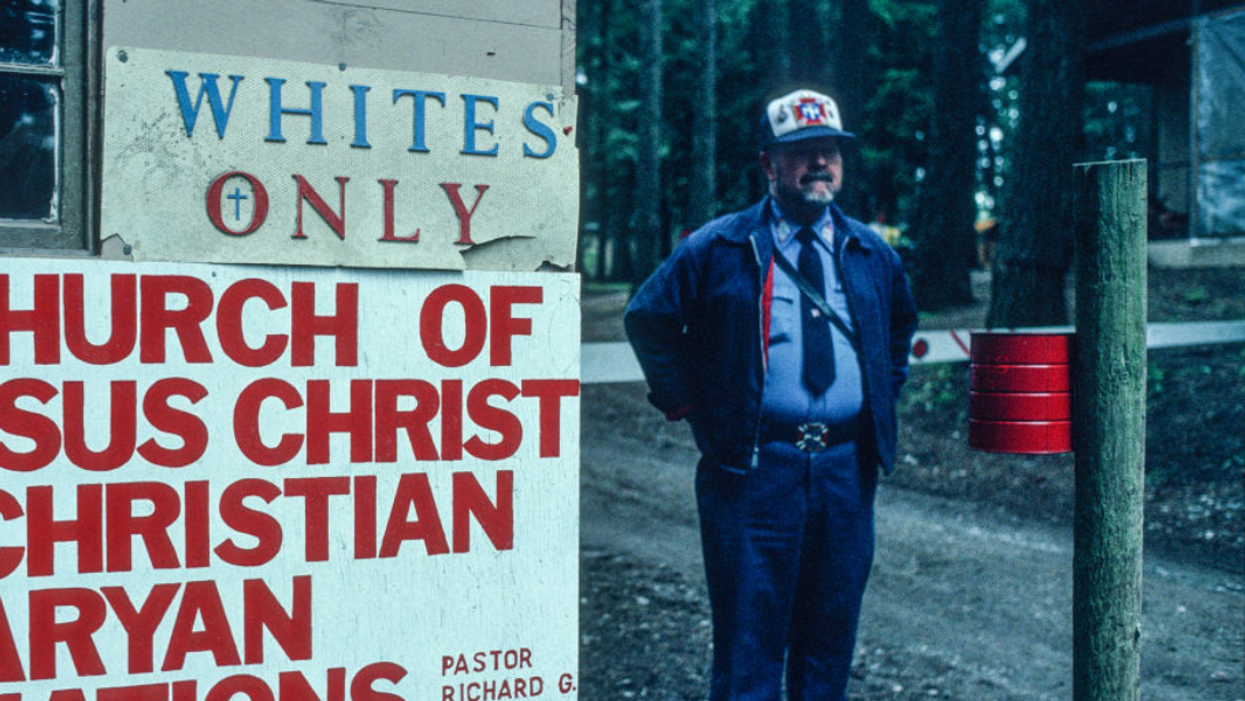Steve Corbin is Professor Emeritus of Marketing at the University of Northern Iowa
You may be among the 35 percent of Americans who have never heard the term “white Christian nationalism.” But, of those citizens who are knowledgeable of the concept, it carries a decidedly negative view. The belief is becoming more and more important to understand as cultural diversity, racism, immigration issues, political divisiveness and political candidate pandering is before us.
What is white Christian nationalism? Generally – according to the Southern Poverty Law Center – it “refers to a political ideology and identity that fuses white supremacy, Christianity and American nationalism, and whose proponents claim that the United States is a `Christian Nation.’”
Research conducted by the non-partisan Public Religion Research Institute (PRRI) with the non-partisan Brookings Institution (BI), as well as a poll sponsored by Southern Poverty Law Center/Tulchin have the same conclusion: white Christian nationalism movement is a growing threat to America’s democracy. The far-right anti-government and religious rights movement of the 1990s is getting stronger and stronger and will play a major role in the 2024 local, county, state and federal elections.
During the Nov. 21-Dec. 14, 2022 time period, 6,212 Americans were asked by PRRI/BI for their reply to these five statements: 1) the US government should declare America a Christian nation, 2) US laws should be based on Christian values, 3) if the US moves away from our Christian foundations, we will not have a country anymore, 4) being Christian is an important part of being truly American and 5) God has called Christians to exercise dominion over all areas of American society.
Answers across all five questions were found to be highly correlated (Cronbach’s alpha of 0.92) with a margin of error of +/- 1.6% at the 95% level of confidence. This is a take-it-to-the-bank research endeavor. Fifty-four percent of the GOP faithful are adherents of Christian nationalism vs. 23% of independents and 15% of Democrats. The PRRI/BI research notes five core attitudes are often associated with Christian nationalist beliefs: anti-Black, anti-Semitic (Jewish), anti-Muslim, anti-immigration and patriarchal adherence of traditional gender roles (husband is head of the household).”
Furthermore, research revealed “Christian nationalism beliefs are strongly correlated with support for QAnon, an extremist movement of the political right,” whose tenets include: “1) The government, media and financial worlds in the U.S. are controlled by a group of Satan-worshiping pedophiles who run a global child sex-trafficking operation, 2) There is a storm coming soon that will sweep away the elites in power and restore the rightful leaders and 3) Because things have gotten so far off track, true American patriots may have to resort to violence in order to save our country.”
The Southern Poverty Law Center offers a summary of the movement that should be a wake-up call to Americans: “White Christian nationalism is a key ideology that inspired the failed Jan. 6, 2021 insurrection and fueled multiple failed political campaigns in 2022 . . . however, white Christian nationalism remains a persistent and growing threat to U.S. democracy.”
Any person with a modicum of intelligence knows European colonists immigrated to America to escape religious persecution, expand their economic opportunities and live in a country where there was separation of church and state. Followers of the white Christian nationalism movement want to contradict the principles and norms of democracy and make America an authoritarian country.
Adherents of white Christian nationalism are the drivers of antidemocratic conspiracy theories and election denialism (SPLC, 2023) and possibly book banning, LGBTQIA denigration, “sanitized” black history curriculum, anti-female reproductive rights, gerrymandering and attacking diversity, equity and inclusion.
Currently there are 14 Republicans and three Democrats wanting to win the Nov. 5, 2024 presidential election. Hundreds of candidates will be seeking local, county, state and federal offices of power. Citizens must be vigilant and keep candidates who espouse any resemblance of white Christian nationalism out of public office.
Steve is a non-paid freelance opinion editor and guest columnist contributor (circa 2013) to 172 newspapers in 32 states who receives no remuneration, funding or endorsement from any for-profit business, not-for-profit organization, political action committee or political party.
Sources:
(PRRI Staff), A Christian Nation? Understanding the threat of Christian Nationalism to American democracy and culture, Public Religion Research Institute, https://prri.org, Feb. 8, 2023
Ashley Lopez, More than half of Republicans support Christian nationalism, according to a new survey, National Public Radio, https://npr.org, Feb. 14, 2023
Christopher Klein, Why did the Pilgrims come to America,? History, https://history.com, Nov. 13, 2020
Joe Wiinikka-Lydon, Emerson Hodges and R.G. Cravens, Old bigotries melded with new conspiracies burgeon white Christian nationalism, Southern Poverty Law Center, 2022: The year in hate and extremism, 2023
Kelefa Sanneh, How Christian is Christian nationalism,? The New Yorker, March 27, 2023
Michelle Goldberg, New York Times: Whose version of Christian nationalism will win in 2014?, U.S. Rep. Lloyd Doggett (D-TX), https://doggett.house.gov, May 15, 2023
(Yale University’s Institute for Social and Policy Studies report), Understanding white Christian nationalism, Yale University/ISPS, https://isps.yale.edu, Oct. 4, 2022
Brookings Institution, Understanding the threat of white Christian nationalism to American democracy today, Brookings Institution, Feb. 8, 2023
Guthrie Graves-Fitzsimmons and Maggie Siddiqi, Christian nationalism is `Single Biggest Threat’ to America’s religious freedom; an interview with Amanda Tylor of the Baptist Joint Committee, The Center for American Progress, April 13, 2022
Peter Stone, Pro-Trump pastors rebuked for overt embrace of white Christian nationalism, The Guardian, May 1, 2023




















Trump & Hegseth gave Mark Kelly a huge 2028 gift